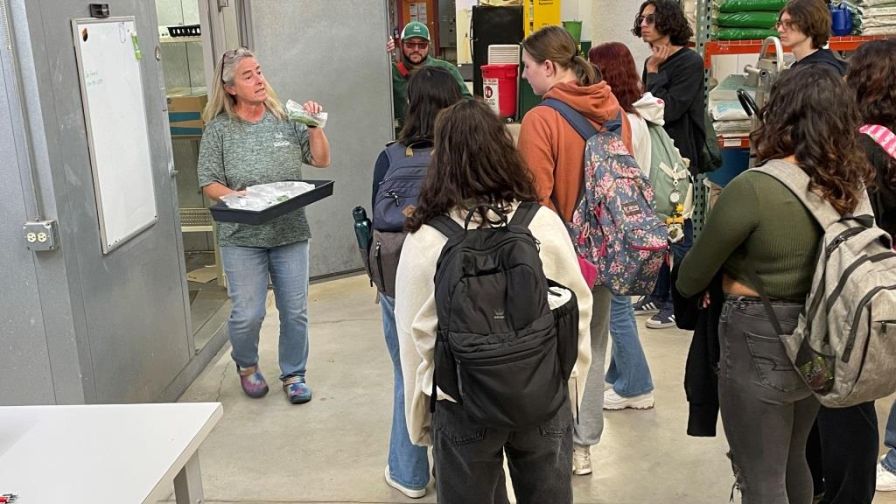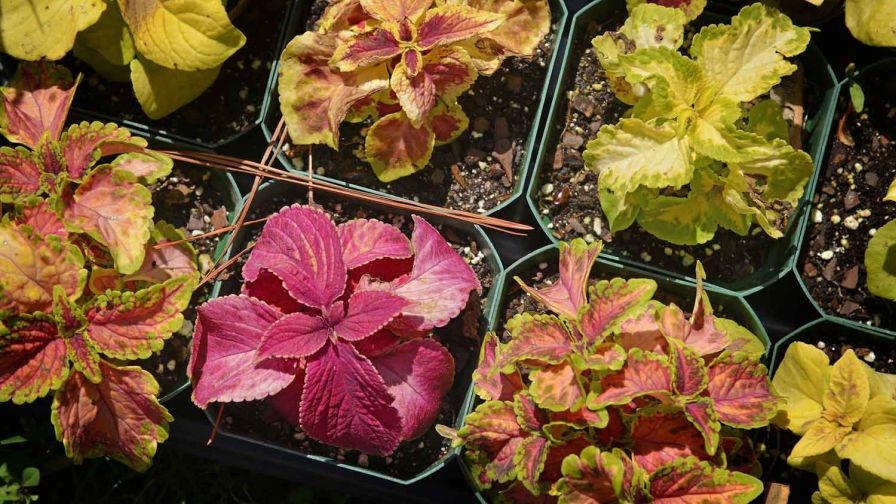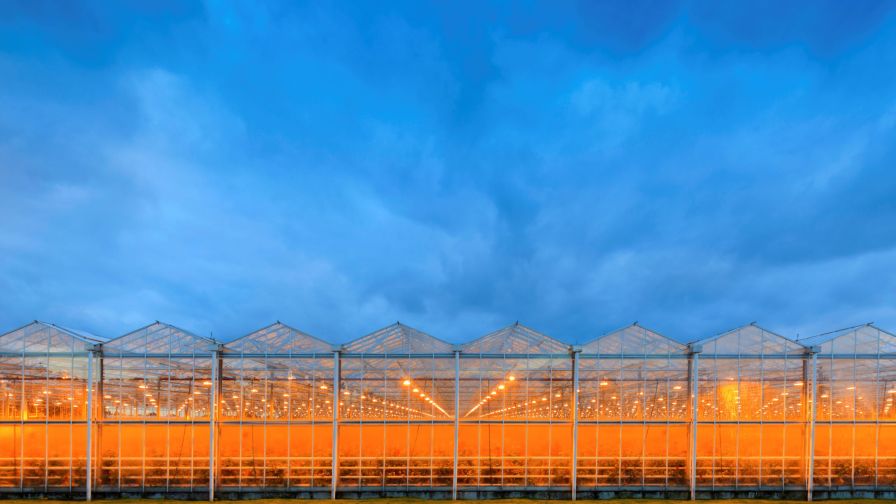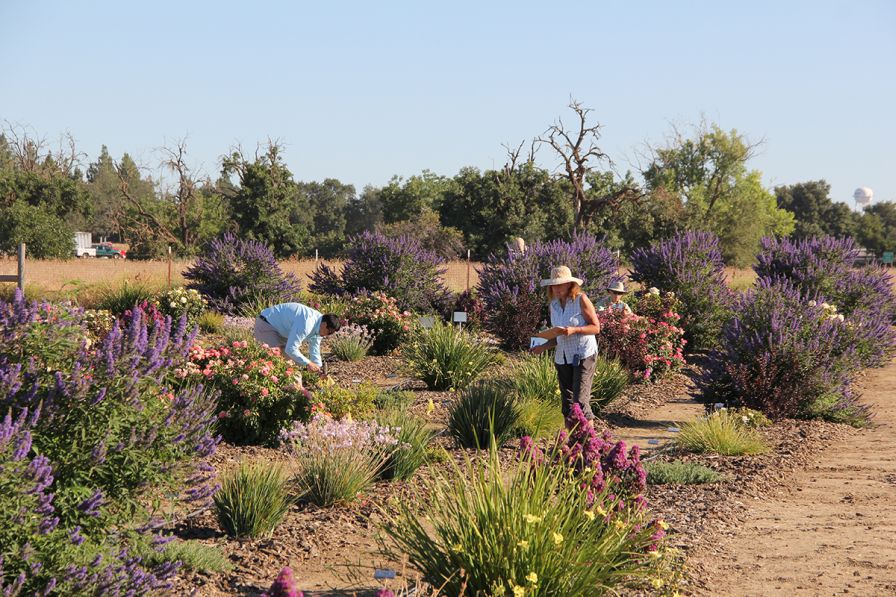There Are Endless Careers in Horticulture, And They’re Not All Plant-Focused

For Green Career Week, Ball Horticultural invited local students to visit its facilities to learn more about horticulture. Photo: Ball Horticultural Company
Right now, one of the best parts of the horticulture industry is the next generation. Young people are joining the industry, and it needs them. As many members of the Baby Boomer generation retire, young people are needed to rise up in the ranks, take over leadership roles, and push the industry forward.
However, not all of those jobs involve plants. When people think of the horticulture industry, they think of plants because that is the product that growers sell to consumers. Growers play a huge role in horticulture, and the industry could not survive without them. But sometimes we forget about the other careers in horticulture, and how necessary those are, too.
Jazmin Albarran, Executive Director of Seed Your Future, says there are many jobs in horticulture that do not require working with plants. She works closely with students, starting in middle school, to recruit them to the horticulture industry.
Many students, Albarran says, think that if they join the industry, they would have to grow plants. Seed Your Future opens their eyes to all of the opportunities that students have if they are not plant enthusiasts, but still want a fruitful career.
“No matter what your passion is, you’re very likely to find something in this industry,” Albarran says.
Careers Without Plants
The career opportunities that do not involve plants are endless. Sales is one of the most common options, Albarran says. Salespeople are needed at all levels of horticulture, including selling plants from breeders to young plant growers, from young plant growers to finished plant growers, and from finished plant growers to retailers. A competent sales team is critical to the success of the industry.
“Sales is an important career,” she says. “You have to be able to sell the plants, whether you’re a broker, breeder, or nursery.”
Along with sales, marketing is an integral part of the industry. Marketing is an umbrella of various specific skills, such as writing, public relations, photography, social media, and more. As Dr. Charlie Hall, Chief Economist for AmericanHort, recently explained, the industry must show consumers why plants are a necessity, not a luxury. This is where marketing comes in.
By using strategic messaging, imagery, and social media platforms, breeders, growers, and retailers help consumers decide which plants to buy. They come up with catchy names for new varieties, design tags with plant care instructions, and they label pots so consumers will recognize particular brands in stores. Although these marketing skills are used for plants, people working in this sector also need to understand how to write engaging content, take compelling photos, and build a social media campaign to reach a targeted audience of consumers.
“Marketing has great opportunities for creative students,” Albarran says.
Logistics is another career that is available for young people. She says many people are aging out of the trucking industry right now, so there are openings for the next generation to start their careers. Plants are moved all over the country, from growers to retailers, even more now with direct-to-consumer shipping on the rise. In addition to truck drivers, there are opportunities to be a logistics coordinator, and schedule different shipments to make sure all plants are delivered to the right place at the right time.
Technology can be one of the biggest factors that draws young people to the horticulture industry. While there is already a lot of technology used in greenhouses, we are on the cusp of advanced technologies like artificial intelligence (AI). Young people may be interested in software development, coding, robotics, and engineering, all of which are necessary to manage technology in a greenhouse operation. More growers are learning to adjust climate controls from mobile devices, and that hits home for young professionals.
“Young people like everything related to technology like AI, automation, and being able to turn on the lights from an iPad in a nursery,” Albarran says. “That’s software development, and young people are all about that type of innovation.”
How to Appeal to Youth
As the next generation plans for their future, they want to know about professional development opportunities. They see their older counterparts with debt from higher education, and may want to take a different path. Rather than earning a bachelor’s degree, many students now reach out to Seed Your Future with questions about professional development on the job, Albarran says.
It may be helpful for companies in the industry to start thinking about this now. Young people are looking for employers that offer professional development, so they can learn on the job rather than taking college classes. They are looking for employers that will hire someone without a bachelor’s degree, she says, and offer educational opportunities.
“College students are asking about personal and professional development. They ask, ‘How will this company pour into me so I grow as a professional within this industry,’” Albarran says. “They’re asking if the employer can connect them with a mentor and provide certification programs. I think that’s great. They’re looking at how they can be better for themselves and better for their company.”
Sustainability is important to the next generation, too. Albarran says employers should be prepared to answer questions about how their practices impact the environment and how they promote sustainability, because young job candidates want to know.
Young people are also seeking flexibility in their job, Albarran says. For example, they may want to come in early one day, and arrive later another day. This accommodates for things like doctor’s appointments, picking up children from school, and more. This is not possible for every role, but employers may want to consider how they can adjust schedules when able.
Green Career Week
Despite offering many careers that young people are interested in, one of the biggest challenges for the industry is actually reaching those individuals. That’s where Green Career Week comes in.
Seed Your Future’s Green Career Week is a national initiative led by industry professionals to increase awareness of green industry careers and build relationships with local schools, colleges, and universities. It takes place twice a year, and the next one is March 4-8. Professionals are encouraged to either bring students to their operation for a tour or visit a classroom to teach students about career paths in the industry.
Albarran says horticulture companies could look for schools within a 40-mile radius to visit. Even if a company visits just one school, they are likely speaking to several hundred students who could be potential team members.
“Ideally, walk students through your plant production and talk about adjacent careers like pest management, irrigation, lighting, transportation, logistics, accounting, and marketing,” she says. “Sell all of the potential careers you have throughout your business. These students are potential employees in your backyard, but one day, they could also be customers.”
Albarran says it may seem overwhelming to bring students to your operation or visit students in a school, but Seed Your Future is here to help. With a slew of resources on SeedYourFuture.org, industry professionals can learn how to connect with local students, and hopefully recruit future employees to their operation.









